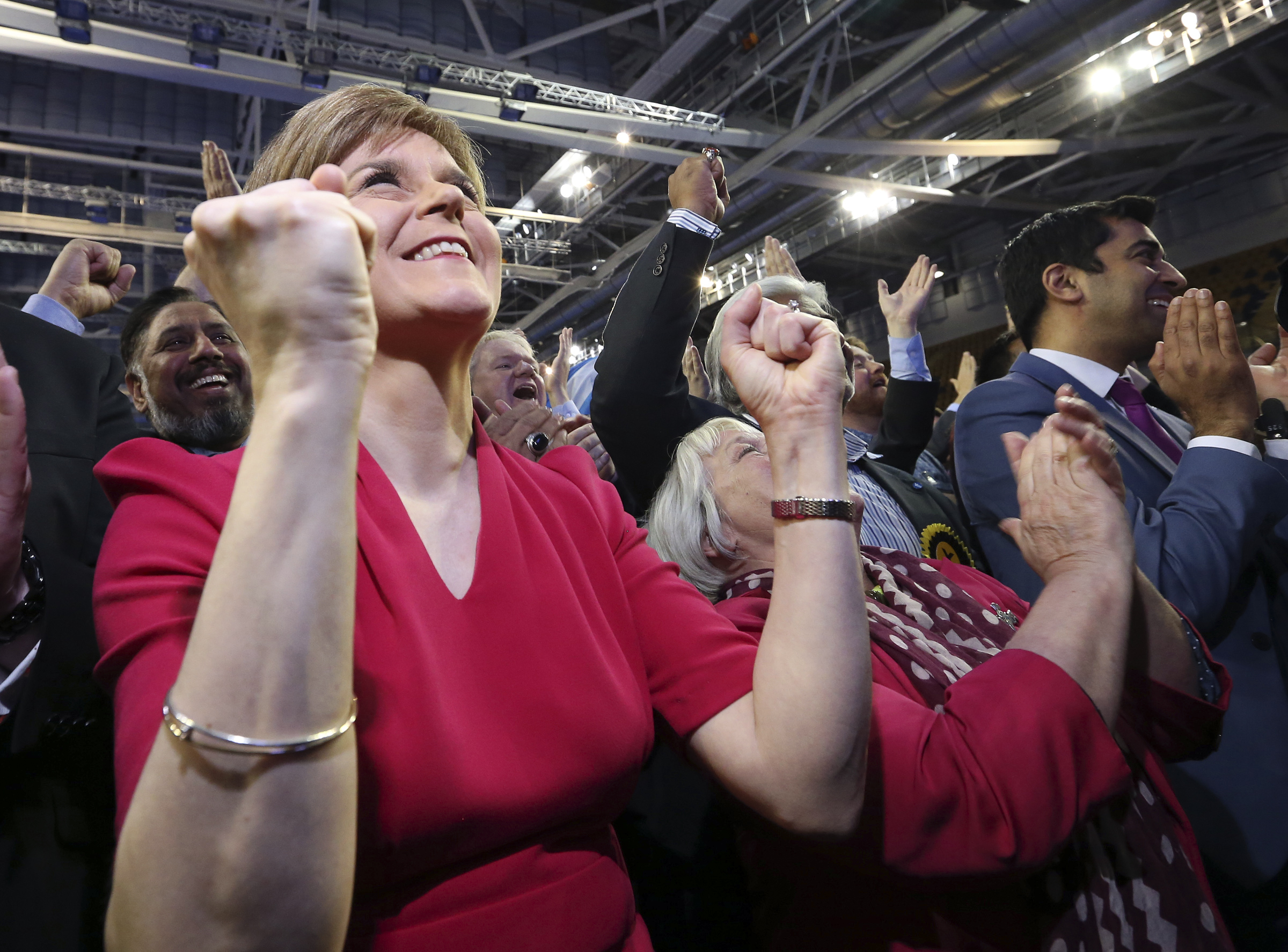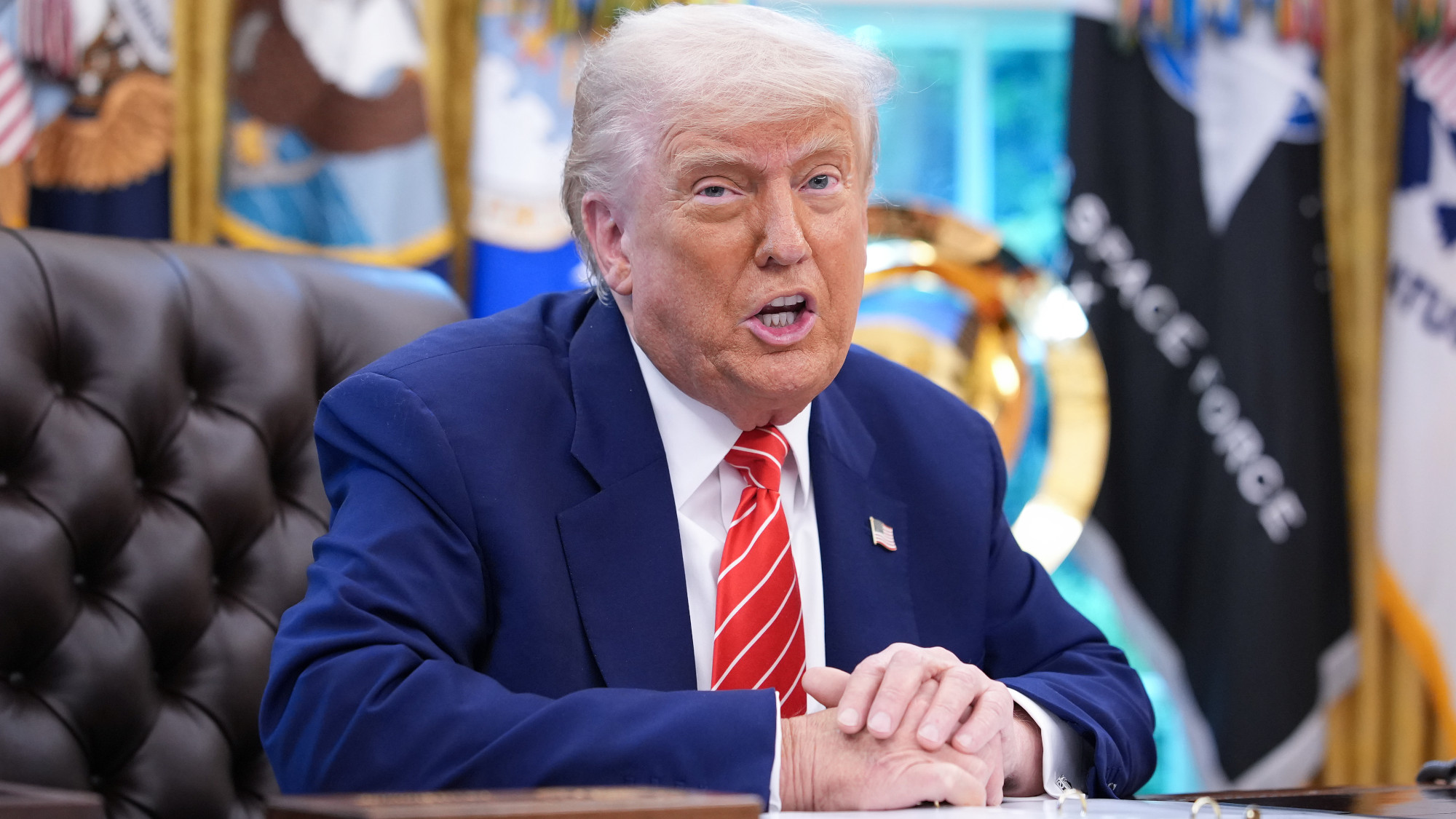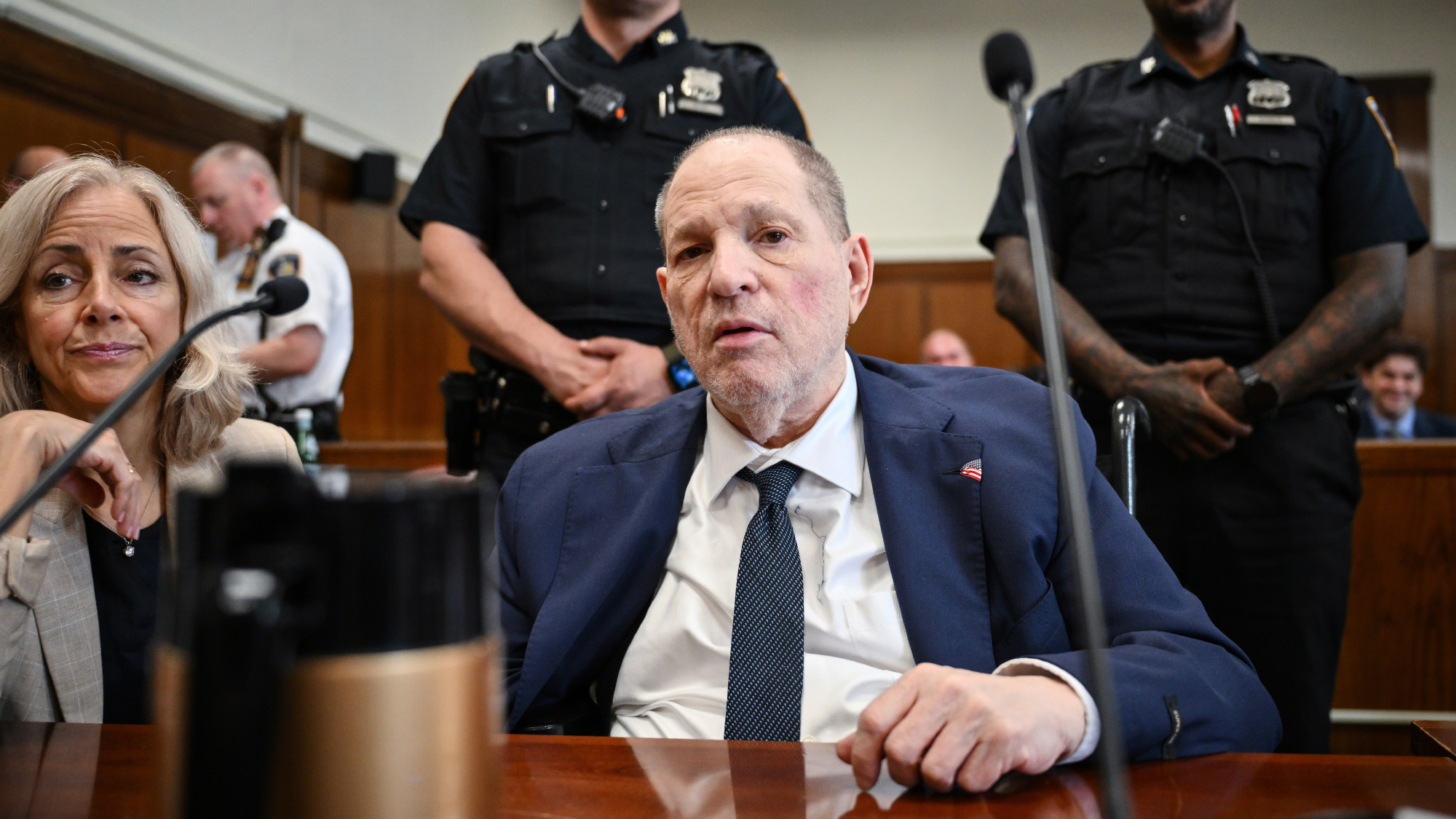Scotland's revenge: How a small nationalist party crushed Britain's Labour
The political left is alive and well in Britain, but kind of blue in England


"The Scottish lion has roared across the country," declared Alex Salmond, the former first minister of Scotland and newly minted member of Britain's Parliament, as the results of Thursday's election came in. Salmond, who stepped down when his Scottish National Party (SNP) narrowly lost its bid for Scottish independence last year, is known for his colorful turns of phrase, but he wasn't wrong.
Thursday's election in the United Kingdom had been projected to be close, with political betting markets giving 50-50 odds that David Cameron, the Conservative prime minister, would lose to Labour's Ed Miliband. The exit polls looked bad for Labour, but the reality is much worse, and Cameron's triumph led Miliband to resign as Labour leader. BBC News helpfully recaps the night's drama in less than 4 minutes:
According to the latest BBC News projections, the Conservatives will win a majority of seats in Parliament, 331 of 650, meaning Cameron won't have to cobble together a coalition to form his government. Labour is projected to win 232, a loss of 26 seats, and the Liberal Democrats — part of Cameron's current coalition — will be down to 8 seats, from 54. Along with the Conservatives, the big winner on Tuesday was the SNP, which is projected to win 56 seats — a gain of 50.
Subscribe to The Week
Escape your echo chamber. Get the facts behind the news, plus analysis from multiple perspectives.

Sign up for The Week's Free Newsletters
From our morning news briefing to a weekly Good News Newsletter, get the best of The Week delivered directly to your inbox.
From our morning news briefing to a weekly Good News Newsletter, get the best of The Week delivered directly to your inbox.
Here's the thing: When you look at the popular vote, Labour didn't fare too poorly: 30.5 percent to the Conservatives' 36.8 percent, according to incomplete results. The Liberal Democrats earned 7.8 percent of the vote, the SNP 4.8 percent, and the Greens 3.8 percent — giving the political left roughly half the vote.
On the other side, the UK Independence Party (UKIP) got a respectable 12.6 percent, which translated to the same number of seats as the Greens: 1. UKIP leader Neil Farange didn't win a seat and resigned as leader of the populist conservative party.
So what happened? First, the UK's parliamentary system doesn't care too much about the popular vote: Individual constituencies are winner-take-all, like U.S. congressional districts.
Then, Labour underperformed in England and was virtually wiped out in Scotland. "We haven’t made the gains that we wanted in England and Wales," Miliband explained, "and in Scotland we have seen a surge of nationalism overwhelm our party." SkyNews political director Faisal Islam suggested that the Liberal Democrats were essentially Cameron's scapegoats, and Scottish voters were mad at Labour for joining Cameron to help defeat independence.
"Rather than contracting after losing the independence vote, the SNP was revitalized, with a sharply increased membership and an enthusiasm unmatched by the Labour Party," say Dan Balz and Griff Witte at The Washington Post. "To voters who want a Labour Party devoted to Scotland, the decision looked like a betrayal — a party in league with London that was no longer authentically Scottish."
Labour was also widely seen in Scotland as taking the Scottish for granted, ignoring its problems, and poaching its political talent. Political analysts, too, are giving a lot of credit to SNP leader Nicola Sturgeon, who emerged as a masterful campaigner and shone during the one televised debate of party leaders.
The SNP's evisceration of Labour in Scotland isn't entirely to blame for Labour's misfortune and the Tories' gains — early Friday, Miliband tweeted that "the responsibility for the result is mine alone" before he announced his resignation.
But almost all of the SNP's 50 extra seats were poached from Labour, and that sealed the party's loss.
Oddly, it was sort of a Pyrrhic victory for the SNP. "They have been victims of their own success because their hopes of influencing a Labour government now lie in tatters because of Ed Miliband's party's disastrous performance," says SkyNews chief political correspondent Jon Craig. "The SNP will get no favors from David Cameron and the Conservatives."
For Scottish nationalists, that's a potential hangover they're probably happy to deal with after Thursday's heady victory.
Sign up for Today's Best Articles in your inbox
A free daily email with the biggest news stories of the day – and the best features from TheWeek.com
Peter has worked as a news and culture writer and editor at The Week since the site's launch in 2008. He covers politics, world affairs, religion and cultural currents. His journalism career began as a copy editor at a financial newswire and has included editorial positions at The New York Times Magazine, Facts on File, and Oregon State University.
-
 Wall Street has coined a new term for Trump's tariff threats
Wall Street has coined a new term for Trump's tariff threatsFeature TACO stands for 'Trump Always Chickens Out'
-
 Trump's LA immigration showdown casts shadow over upcoming World Cup
Trump's LA immigration showdown casts shadow over upcoming World CupIN THE SPOTLIGHT Amid a massive anti-immigrant detention push, analysts have begun to worry over the United States' plan to host one of the world's biggest athletic events
-
 Weinstein convicted of sex crime in retrial
Weinstein convicted of sex crime in retrialSpeed Read The New York jury delivered a mixed and partial verdict at the disgraced Hollywood producer's retrial
-
 Walter Isaacson's 'Elon Musk' can 'scarcely contain its subject'
Walter Isaacson's 'Elon Musk' can 'scarcely contain its subject'The latest biography on the elusive tech mogul is causing a stir among critics
-
 Welcome to the new TheWeek.com!
Welcome to the new TheWeek.com!The Explainer Please allow us to reintroduce ourselves
-
 The Oscars finale was a heartless disaster
The Oscars finale was a heartless disasterThe Explainer A calculated attempt at emotional manipulation goes very wrong
-
 Most awkward awards show ever?
Most awkward awards show ever?The Explainer The best, worst, and most shocking moments from a chaotic Golden Globes
-
 The possible silver lining to the Warner Bros. deal
The possible silver lining to the Warner Bros. dealThe Explainer Could what's terrible for theaters be good for creators?
-
 Jeffrey Wright is the new 'narrator voice'
Jeffrey Wright is the new 'narrator voice'The Explainer Move over, Sam Elliott and Morgan Freeman
-
 This week's literary events are the biggest award shows of 2020
This week's literary events are the biggest award shows of 2020feature So long, Oscar. Hello, Booker.
-
 What She Dies Tomorrow can teach us about our unshakable obsession with mortality
What She Dies Tomorrow can teach us about our unshakable obsession with mortalityThe Explainer This film isn't about the pandemic. But it can help viewers confront their fears about death.
